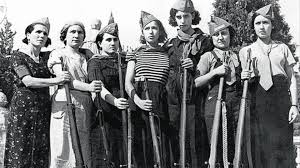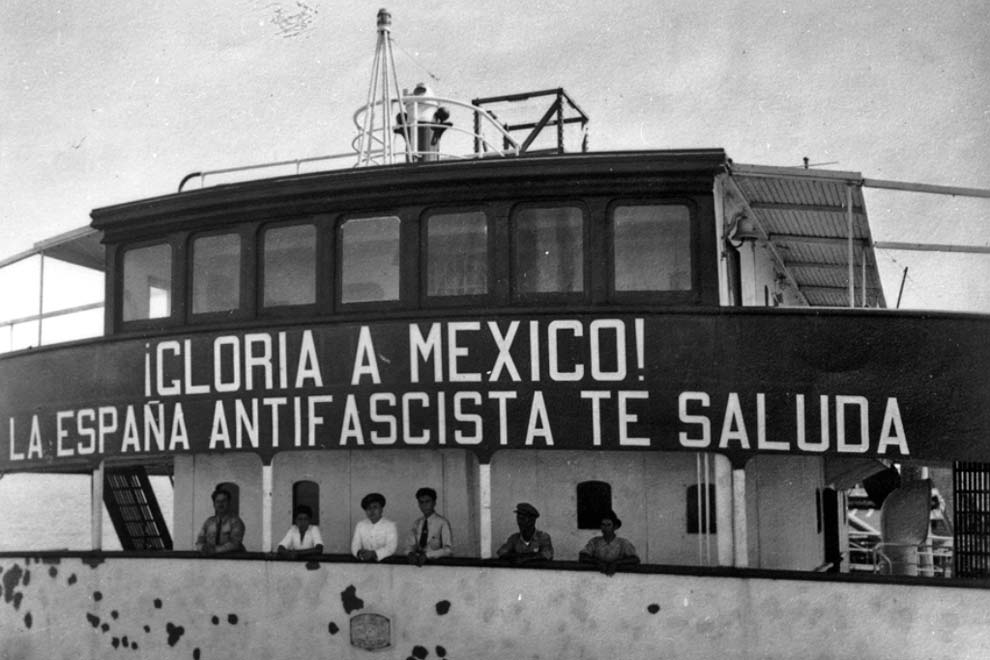Democratic Memory Law 2022
"Grandchildren's Law"
Spanish nationality for children and grandchildren of Spaniards or women who renounced or lost their citizenshipSpanish nationality upon marriage
Democratic Memory Law
The Congress of Deputies has approved the
Democratic Memory Law, known as the Law of Grandchildren, which aims to pay tribute to those who had to leave Spain for political, ideological or religious reasons.
WHO CAN APPLY FOR NATIONALITY UNDER THE DEMOCRATIC MEMORY LAW?
HOW CAN ONE APPLY FOR SPANISH NATIONALITY THROUGH DEMOCRATIC MEMORY?
Applications must be submitted to the Consulate corresponding to the place of residence of the interested party. According to the Law, the application for nationality must be formalized
until October 21, 2025 . Since the Council of Ministers has recently agreed to extend it for another year.
WHAT DOCUMENTS DO YOU NEED TO PROVIDE?
In all the above cases, the following documents must be provided:
a) Passport .
b) Literal birth certificate of the applicant , issued by the local Civil Registry in which it is registered, duly legalized and, if necessary, translated.
Besides…
If the application is submitted through the assumption 1 :
- Birth certificate of the applicant's father, mother, grandfather or grandmother, who were originally Spanish.
If the application is submitted as a grandchild of a grandfather/grandmother originally from Spain, a literal birth certificate of the father or mother - the one corresponding to the line of the Spanish grandfather or grandmother - of the applicant must also be provided.
2. Documentation proving the exiled status of the father, mother, grandfather or grandmother.
If the application is submitted through the assumption 2 :
- Literal birth certificate of the applicant's Spanish mother.
- Certified copy of the mother's marriage to a foreigner, contracted before December 29, 1978, issued by the Civil Registry in which it is registered.
- For marriages formalized between August 5, 1954 and December 28, 1978, both inclusive, documentation must also be provided proving the mother's acquisition of the husband's nationality
If the application is submitted through the
assumption 3
:
- Literal Spanish birth certificate of the father or mother of applicants of legal age who acquired nationality by this Law or by the Law of Historical Memory.
How can we help you?
Analysis and legal advice on your case and corresponding assumption
We analyze the family line and context to determine the viability of the application and the most appropriate annex.
Necessary documentation
Full Folder Review
Review of documentation for the folder and forms for submitting the application.
Search for the birth certificate of a Spanish ancestor in Spain
Location of the birth certificate of the Spanish ancestor in Spanish registries and parishes.
Support in requesting an appointment at the consulate
Assistance in requesting an appointment at the various Spanish consulates.
You will always be assisted by a lawyer from our team who will follow your case until the granting of nationality with all the guarantees and will attend to all the requirements of the Authorities if necessary. We are lawyers registered by the illustrious Bar Association of Madrid.
Background: The Law of Historical Memory (Law 52/2007)
The Historical Memory Law allowed access to Spanish nationality to children and grandchildren of Spaniards.
The possibility of accessing nationality through the Law of Historical Memory was in force until December 27, 2011 and Two assumptions were included:
- Spanish nationality for international brigade members.
Article 18. Granting of Spanish nationality to volunteers who are members of the International Brigades. "1. In order to make effective the right recognised by Royal Decree 39/1996, of 19 January, to volunteers who are members of the International Brigades who participated in the Civil War from 1936 to 1939, the requirement to renounce their previous nationality required in article 23, letter b, of the Civil Code, with regard to the acquisition of Spanish nationality by letter of naturalisation, will not apply to them. 2. By Royal Decree approved by the Council of Ministers, the requirements and the procedure to be followed for the acquisition of Spanish nationality by the persons mentioned in the previous section will be determined."
2. Spanish nationality for children and grandchildren of Spaniards exiled during the Civil War.
Seventh Additional Provision. "1. Persons whose father or mother was originally Spanish may opt for Spanish nationality by origin if they formalize their declaration within two years from the entry into force of this Additional Provision. This period may be extended by agreement of the Council of Ministers for up to one year. 2. This right shall also be recognized to the grandchildren of those who lost or had to renounce Spanish nationality as a result of exile."
Advantages of Spanish nationality under the Law of Democratic Memory
Right to reside and work
Courses and studies in the EU
Powerful passport
Visa-free entry to countries that do not require a visa for Spaniards. 2# most powerful passport in the world according to Passport Index .
Right to Public Health
Protection in consulates
Without renouncing your current nationality
Frequently asked questions about the "Grandchildren's Law"
Spanish exile abroad: where did the exiles go?
During the Spanish Civil War, 1936 to 1939 and until the post-war period, 1945, many Spaniards were forced to leave their homeland and move to other countries, for political and ideological reasons, or for fear of reprisals by the victorious side and the authoritarian political regime established in Spain, Francoism. Some of them returned postpreviously to Spain when the political situation permitted it, but many others integrated into the societies that gave them refuge, contributing in some notable cases to their development.
A large part of the first refugees, until 440,000 arrived in France According to an official report from March 1939, although many of them managed to return in the 1940s, The "permanent" Republican exile was made up of some 220,000 people Many of them were former combatants, politicians or officials directly committed to the republican cause, but among them were also thousands of relatives and civilians, along with a significant number of children, intellectuals, cultural figures and artists, scientists and teachers, and people in qualified professions.
The main destination countries were, in particular, France, Mexico, Argentina and the Soviet Union , but important groups in other European and American countries were also protected. s such as Uruguay, Chile, Colombia, Venezuela, Cuba, Peru, the Dominican Republic, the United States and the United Kingdom.









